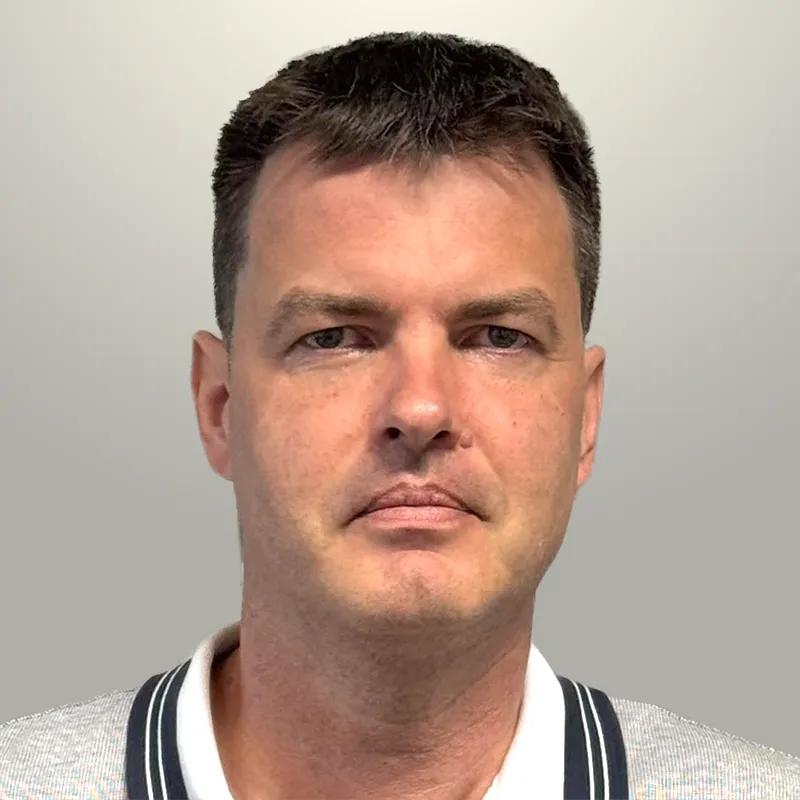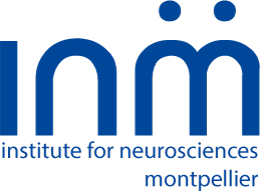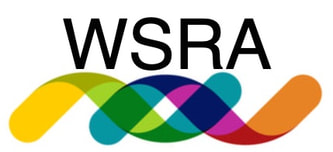Funding Research to Save Lives
Our Mission
To accelerate the discovery of treatments and cures for Wolfram Syndrome and eventually other rare and ultra-rare diseases.
Learn More
About Wolfram Syndrome
Wolfram Syndrome is a rare genetic condition caused by mutations in the WFS1 gene, impacting roughly 2,000 individuals in the U.S. and approximately 20,000 worldwide. Currently there is no cure.
Children with the WFS1 gene mutation are usually diagnosed at age 6. Distinctive complications include diabetes, loss of vision due to optic nerve atrophy, loss of hearing, and progressive neurodegeneration. Consequently, prognoses are extremely poor with a median lifespan of 30-40 years. With no current cure, effective disease modifying treatments are urgently needed.
In the US alone, 30 million people are affected by approximately 7,000 known rare and ultra-rare diseases. Many are life-threatening, and very few have FDA-approved treatments. About 45% of these diseases are neurological disorders, and 90% of rare childhood disorders have major neurological effects.
In general, the medical industry targets a cure for the masses, while efforts surrounding rare & ultra-rare diseases typically remain sidelined due to a lack of funding. While a singular rare or ultra-rare disease may only impact a small percentage of lives, in aggregate these diseases impact 1 in 10 individuals in our country.
Be a Tiger Foundation humbly strives to achieve an immediate impact in the ultra-rare disease space. We are a nonprofit 501(c)(3) organization, and through your generous donations, we directly fund and support clinical research aimed to treat and cure Wolfram Syndrome. The expectation is that 100% of your contributions made to the foundation will go toward funding a cure, so that your generosity will have maximum impact on patients and families affected by this disease.
research the latest advances
Wolfram Syndrome Research Alliance
The Wolfram Syndrome Research Alliance (WSRA) serves as a centralized portal to connect researchers and clinicians, coordinating their efforts to quickly and effectively develop treatments and a cure for Wolfram Syndrome.
WSRA supports relationships between researchers while aligning scientists, clinicians, patients, governmental and non-profit agencies to further efforts towards effective Wolfram Syndrome treatment. Click the link below for the WS Treatment Pipeline.
Pleased to Meet You
Our Team
“Hope lies in dreams, in imagination, and in the courage of those who dare to make dreams into reality.”
– Jonas Salk
Derik Liberatore
Founder
25 Years Financial Services Industry
B.A. Colgate University, 1996
Born in McKeesport, PA
Lauren Liberatore
Co-Founder and COO
4 Years Accounting & Auditing
10 Years Pharmaceutical Industry
B.S. California Polytechnic State University, 2002
Born in Carmel, CA
trusted advice
Medical & Scientific Advisory Board

Sarah Gladstone, MD
Chief Scientific Advisor
Sarah Gladstone, MD
Chief Scientific Advisor
After graduating from Princeton University in 1993, Dr. Gladstone received her MD from Vanderbilt University Medical School. Upon completion of her residency in pediatrics at Boston Children’s Hospital and Boston Medical Center, she entered private pediatric practice for 15 years. Dr. Gladstone has been on sabbatical since 2016, just prior to her oldest child’s diagnosis of Wolfram syndrome. Since receiving that diagnosis, Sarah has focused on patient advocacy, fundraising, and treatment options for Wolfram syndrome. She tirelessly devotes her time and energy to finding a cure, and she is a passionate voice for the Wolfram community.

Fumihiko Urano, MD, PhD
Professor of Medicine and of Pathology and Immunology
Fumihiko Urano, MD, PhDMD
Professor of Medicine and of Pathology and Immunology
Dr. Fumihiko “Fumi” Urano, MD, PhD, is a distinguished physician scientist internationally recognized for his expertise in Wolfram syndrome. He is a Professor of Medicine and of Pathology and Immunology at Washington University School of Medicine in St. Louis and holds the Samuel E. Schechter Endowed Professorship in Medicine.
Dr. Urano serves as Director of the Wolfram Syndrome and Related Disorders Clinic at Barnes Jewish Hospital and leads the associated research program at Washington University. A pioneer in the field, his research spans basic science, clinical trials, translational studies, and interventional approaches, all focused on unraveling the mechanisms of Wolfram syndrome and identifying effective therapies.
Through his leadership, innovative clinical trials have advanced promising treatment strategies, including oral medications to slow disease progression, gene editing therapies, and regenerative medicine approaches aimed at reversing neurodegeneration. His collaborative work within Washington University and with partners across the United States and around the world has positioned him at the forefront of the effort to develop transformative therapies for Wolfram syndrome and related disorders.

Saumel Ahmadi, MD, PhD
Pediatric Neurologist-Neuroscientist
Saumel Ahmadi, MD, PhD
Pediatric Neurologist-Neuroscientist
Dr. Saumel Ahmadi, MD, PhD, is a child neurologist-neuroscientist pursuing patient inspired translational and clinical research. His focus is precision medicine for rare neurogenetic conditions like Wolfram syndrome. He is currently a faculty member in Neurology and Epilepsy at Washington University in St. Louis, and he is also affiliated with the WashU Institute of Clinical and Translational Sciences (ICTS).
A board-certified Child Neurologist, Dr. Ahmadi has distinguished himself through innovative and highly multi-disciplinary research. His research has been characterized by developing patient-specific platforms for translational research, leveraging advanced techniques in stem cell modeling, biomarker, and drug discovery. Currently his major focus is on Wolfram syndrome.
Dr. Ahmadi has made significant contributions to scientific literature, with publications in prestigious journals. His research has pioneered approaches in electrophysiology, channel function analysis, and personalized drug discovery, particularly in the context of genetic disorders. His professional achievements include serving as a co-investigator in clinical trials, editorial board memberships in medical journals, and receiving numerous academic awards and accolades.
Dr. Ahmadi is committed to advancing the understanding of rare neurogenetic conditions and developing targeted therapeutic approaches. His interdisciplinary approach, combining clinical expertise with advanced research methodologies, positions him at the forefront of precision medicine in pediatric neurology.

Mario Plaas, PhD
Professor of Translational Medicine
Mario Plaas, PhD
Professor of Translational Medicine
Professor Mario Plaas is a scientist with a long-standing track record in Wolfram syndrome (WS) research. As a Professor of Translational Medicine at the University of Tartu, in Estonia, he has developed both mouse and rat models of WS that are now extensively used by research groups worldwide to study disease mechanisms and evaluate potential therapies. His team has made significant advances in understanding WS pathophysiology and has demonstrated that early pharmacological intervention—most notably with GLP-1 receptor agonists—can delay or attenuate the progression of key disease features. Professor Plaas continues to lead translational efforts to bring novel therapeutic strategies for WS closer to clinical application.
company we keep
Our Partners
“Not one of us, including me, ever does great things. But we can all do small things, with great love. And together we can do something magnificent.”
– Mother Teresa

Purchase our HOPE bracelet.
Thanks to our partner, Oriana Lamarca, a portion of the proceeds will go toward funding a cure.
Contact derik and lauren
Give us a ring, we’d love to chat with you.
Whether you want to learn more about the disease, patient advocacy, or our fundraising efforts, please don’t hesitate to reach out.
“Life’s like a movie, write your own ending.”
– Jim Henson
Contact Us
ways to donate
Make a check payable to BE A TIGER FOUNDATION:
Email beatigerfoundation for mailing address.
Paypal
Paypal is the preferred method
Fee free for the charity!
Venmo
Venmo charges the foundation a 2% fee
Every.org
For donations in the form of cryptocurrency







